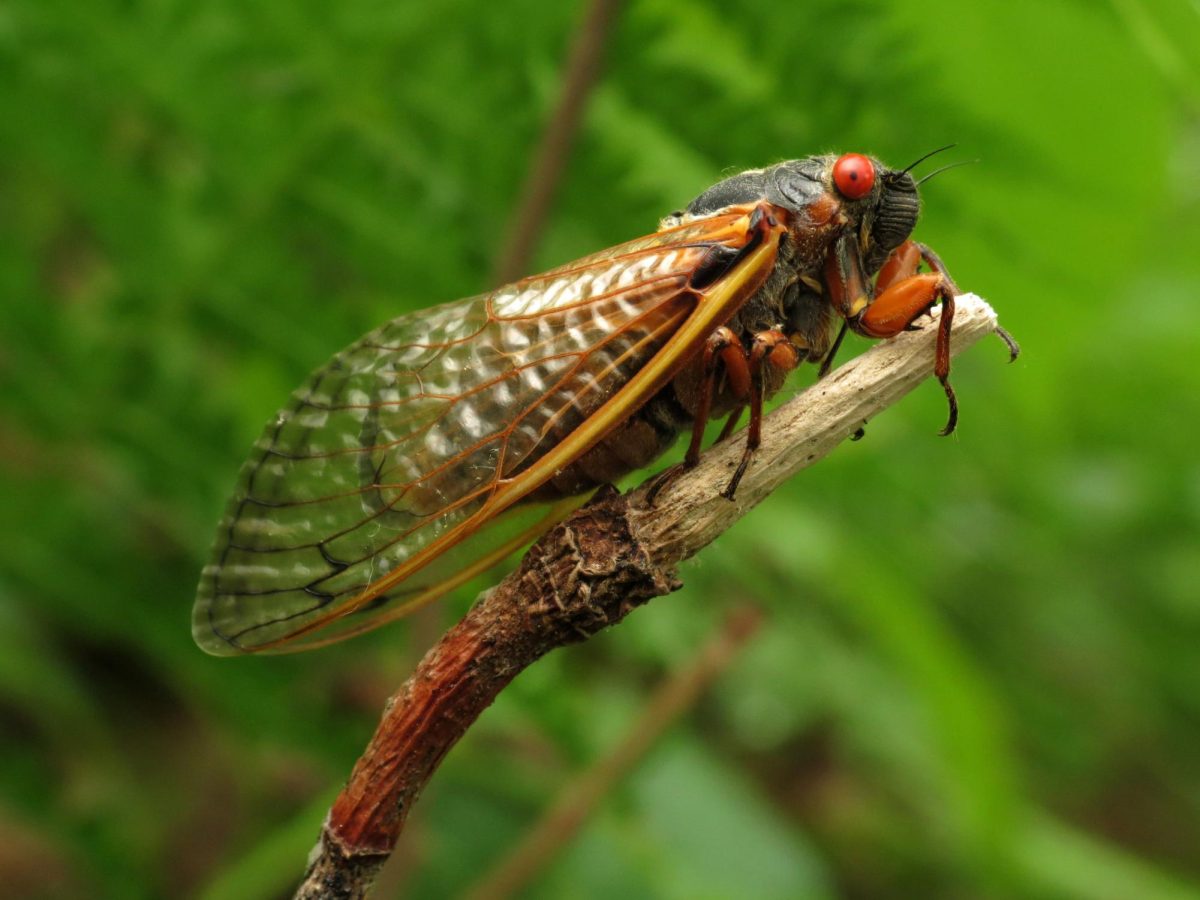The summer of 2024 marks the first time since 1803 that periodical cicada broods XIII and XIX will emerge simultaneously in parts of Illinois. St. Charles, though, will only see the emergence of brood XIII.
According to an article from the University of Illinois, periodical cicadas are some of the longest living insects. They live up to 17 years but spend most of their time underground. They begin to rise when the soil they live in warms up to 64 degrees. This would happen around late May or early June in St. Charles.
When they arrive, the cicadas will begin to mate. As stated by the University of Illinois, the adult cicadas will die after about a month, leaving piles of deceased cicadas under the trees they lay eggs in. The eggs that the cicadas leave behind will begin to hatch after six to ten weeks and will begin feeding on the roots of trees.
Cicadas are not generally considered harmful, but they can damage young trees. To minimize any damage caused, netting can be put up around them to prevent cicadas from laying eggs in their branches.
As the time shortens until the cicadas emerge, some have raised concerns. Special Ed teacher Kelly Tarantino said that her greatest fear is the “cicadas flying into [her] hair and getting stuck.” Even though they are harmless, many are still afraid of the impending invasion. However, these broods emerge only once every generation, so regardless of one’s disposition, this is a historical time to be a part of.









